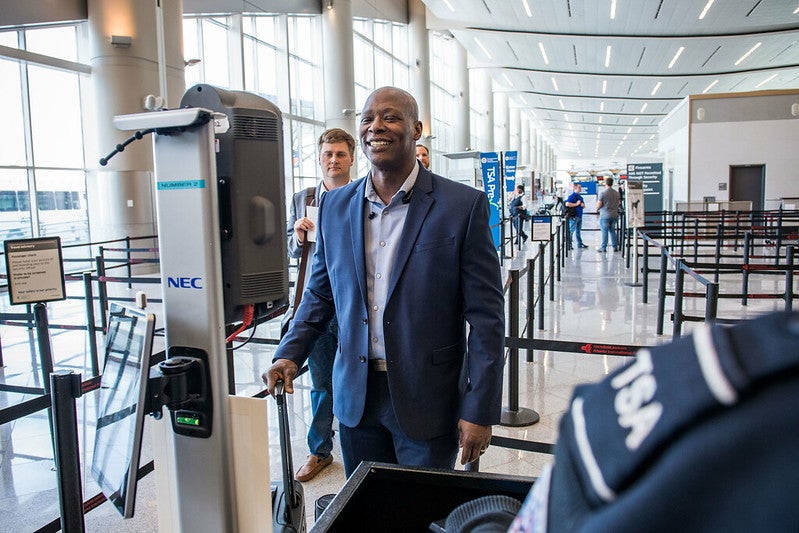
The US Department of Homeland Security (DHS) has reportedly dropped plans to mandate facial recognition scans for all citizens entering and exiting the country.
Plans to introduce facial scanning were revealed earlier this week.
The regulation, which included US citizens, expected to put a check on the illegal use of travel documents and identify criminals and terrorists.
The move was criticised by many organisations such as the American Civil Liberties Union (ALCU), law makers and advocates for privacy.
A US Customs and Border Protection (CBP) spokesperson said: “There are no current plans to require US citizens to provide photographs upon entry and exit from the United States.
“CBP intends to have the planned regulatory action regarding US citizens removed from the unified agenda next time it is published.”
How well do you really know your competitors?
Access the most comprehensive Company Profiles on the market, powered by GlobalData. Save hours of research. Gain competitive edge.

Thank you!
Your download email will arrive shortly
Not ready to buy yet? Download a free sample
We are confident about the unique quality of our Company Profiles. However, we want you to make the most beneficial decision for your business, so we offer a free sample that you can download by submitting the below form
By GlobalDataCBP announced its decision to withdraw the plan on 5 December.
ACLU senior policy analyst Jay Stanley was quoted by The Washington Post as saying: “The Department of Homeland Security’s plans to spread face recognition surveillance nationwide remains alarming, especially given the lack of congressional authorisation and sufficient safeguards, the government’s past security failures and unanswered questions about the technology’s effectiveness, bias and broader societal implications.”
US Senator from Massachusetts Edward J Markey had planned to introduce a legislation to block CBP from going ahead with the plan on 4 December.
US citizens and permanent residents currently have the option of refusing biometric scans at airports.







